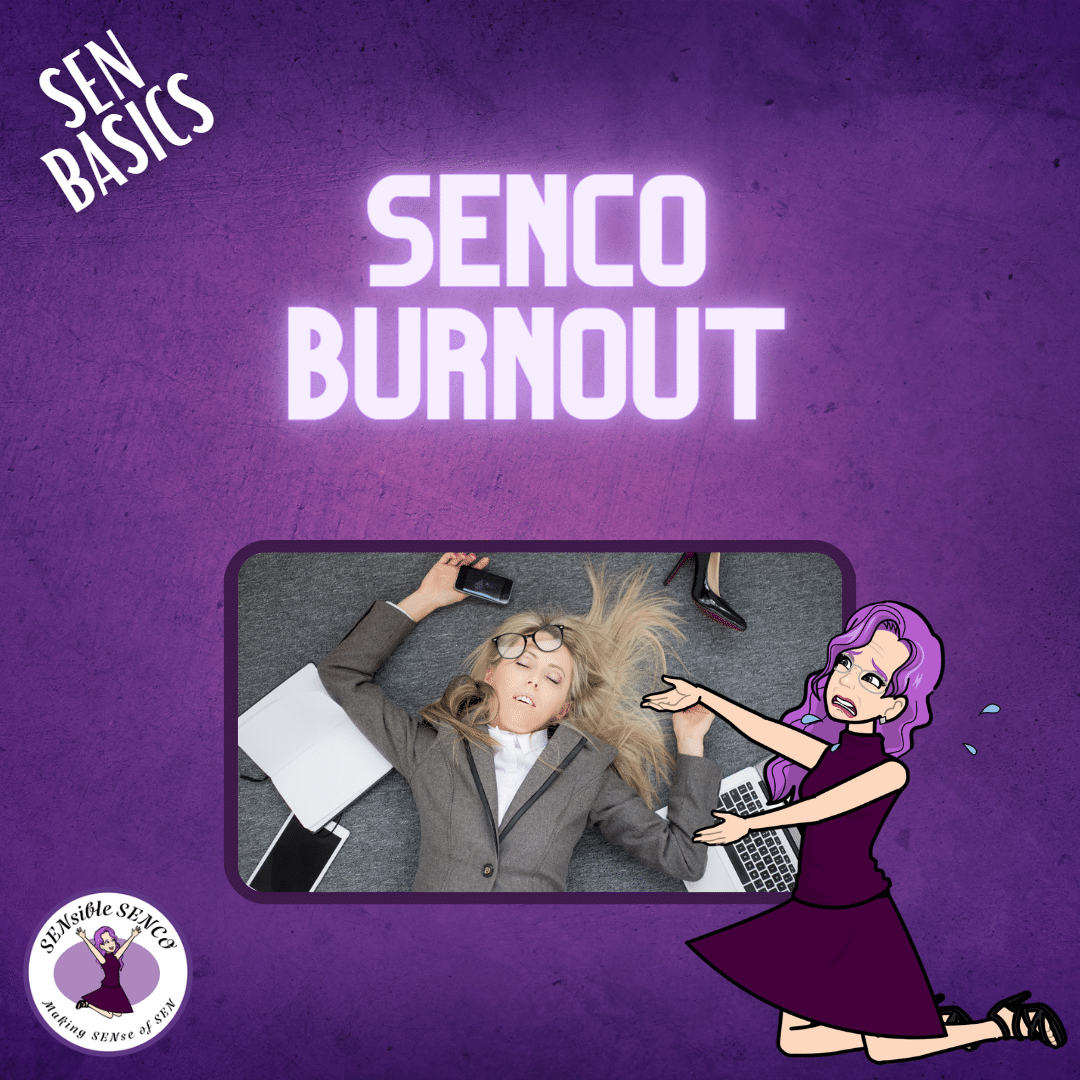SENCO Burnout: Recognising and Preventing Burnout as a SENCO
As a SENCO, it’s not uncommon to feel overwhelmed and stressed out. The responsibilities of supporting students with special educational needs and disabilities can be demanding, and it’s important to recognise the signs of burnout before it affects your mental and physical health. In this article, we will explore what SENCO burnout is, how to recognise the signs, and practical strategies to prevent burnout from happening.
Introduction
Being a SENCO can be a fulfilling role, but it can also be challenging. The complex nature of supporting students with special educational needs and disabilities (SEND) requires a lot of dedication and hard work. The pressure to meet the needs of students while navigating the education system can result in SENCO burnout. In this article, we’ll explore what SENCO burnout is, how to recognise the signs, and practical strategies to prevent burnout from happening.
What is SENCO burnout?
SENCO burnout is a state of physical, emotional, and mental exhaustion that results from prolonged stress in the role of a SENCO. Burnout can impact both personal and professional aspects of life and can lead to negative outcomes such as poor performance, absenteeism, and mental health issues.
Recognising the signs of burnout
Recognising the signs of burnout is the first step to prevent it. Below are some common physical, emotional, and behavioural symptoms of burnout that SENCOs should be aware of.
1. Physical symptoms
• Fatigue or exhaustion
• Insomnia or disturbed sleep
• Headaches or migraines
• Digestive problems
Frequent illnesses or infections
2. Emotional symptoms
• Anxiety or depression
• Irritability or mood swings
• Lack of motivation or interest
• Feelings of helplessness or hopelessness
Loss of enjoyment in activities previously enjoyed
3. Behavioural symptoms
• Increased use of alcohol or drugs
• Isolation or withdrawal from others
• Neglecting responsibilities at work or home
• Procrastination or avoidance of tasks
• Reduced productivity or efficiency
Causes of SENCO burnout
SENCO burnout can be caused by a variety of factors. Here are some common causes of burnout in the SENCO role.
1. High workload
SENCOs have a heavy workload, which can include coordinating with teachers, liaising with parents and outside agencies, and managing paperwork. This workload can result in a lack of time for self-care and can lead to burnout.
2. Role ambiguity
The role of a SENCO is not always well defined, and this ambiguity can cause stress and anxiety. SENCOs may feel unsure of their responsibilities, leading to a lack of confidence and an increased risk of burnout.
3. Lack of support
SENCOs require support from their colleagues and school leadership to carry out their role effectively. The lack of support can lead to feelings of isolation and stress.
Strategies to prevent SENCO burnout
Preventing SENCO burnout requires a proactive approach to self-care and workload management. Here are some strategies that can help prevent burnout:
1. Prioritise self-care
Self-care is crucial in preventing burnout. SENCOs should prioritise their physical and mental well-being by engaging in activities that promote relaxation, such as meditation, exercise, or spending time in nature. It’s also important to set aside time for hobbies and activities outside of work.
2. Set realistic expectations
SENCOs should set realistic expectations for themselves and their workload. They should communicate with their colleagues and school leadership about their workload and ensure that it is manageable. Setting boundaries around work and personal time can also help prevent burnout.
3. Learn to say no
SENCOs should learn to say no when their workload is becoming overwhelming. It’s important to prioritise tasks and delegate responsibilities where possible. Saying no can be difficult, but it’s crucial in preventing burnout.
4. Seek support
SENCOs should seek support from their colleagues and school leadership when they are feeling overwhelmed or stressed. This support can come in the form of mentoring, coaching, or counselling. It’s important to remember that seeking support is a sign of strength, not weakness.
Conclusion
SENCO burnout is a serious issue that can impact the well-being of SENCOs and the students they support. By recognising the signs of burnout and implementing proactive strategies for prevention, SENCOs can maintain their physical, emotional, and mental health. Prioritising self-care, setting realistic expectations, learning to say no, and seeking support are all essential strategies for preventing SENCO burnout.
FAQs
1. How can I recognise the signs of SENCO burnout?
The signs of SENCO burnout can manifest in physical, emotional, and behavioural symptoms. These can include fatigue, insomnia, anxiety, irritability, withdrawal from others, and reduced productivity. It’s important to pay attention to these symptoms and take action to prevent burnout.
2. What are some common causes of SENCO burnout?
SENCO burnout can be caused by factors such as a high workload, role ambiguity, and a lack of support from colleagues and school leadership. These can lead to stress and anxiety, which can impact both personal and professional aspects of life.
3. How can I prevent burnout as a SENCO?
Preventing burnout as a SENCO requires a proactive approach to self-care and workload management. Strategies such as prioritising self-care, setting realistic expectations, learning to say no, and seeking support can help prevent burnout.
4. Is seeking support a sign of weakness?
No, seeking support is not a sign of weakness. It takes courage to recognise when you need help and to seek it out. Seeking support can be an important step in preventing burnout and maintaining good mental health.
5. What should I do if I suspect I am experiencing burnout as a SENCO?
If you suspect you are experiencing burnout as a SENCO, it’s important to take action. Talk to your colleagues or school leadership about your workload and seek support from a counsellor or mental health professional if necessary. Prioritising self-care and implementing strategies for preventing burnout can also be helpful.

Abigail Hawkins FCCT
Director of SENDCO Solutions
Abigail Hawkins was a SENCO for over 25 years and has worked with pupils with all types of needs. Abigail has worked with Ed-Tech companies on developing their software and also been chair of governors for a multi-academy trust. Abigail now runs SENsible SENCO and SENDCO Solutions, with the aim of working with SENCOs and inclusion leaders across the UK to improve their support for SEND pupils. See our school services for more information.




